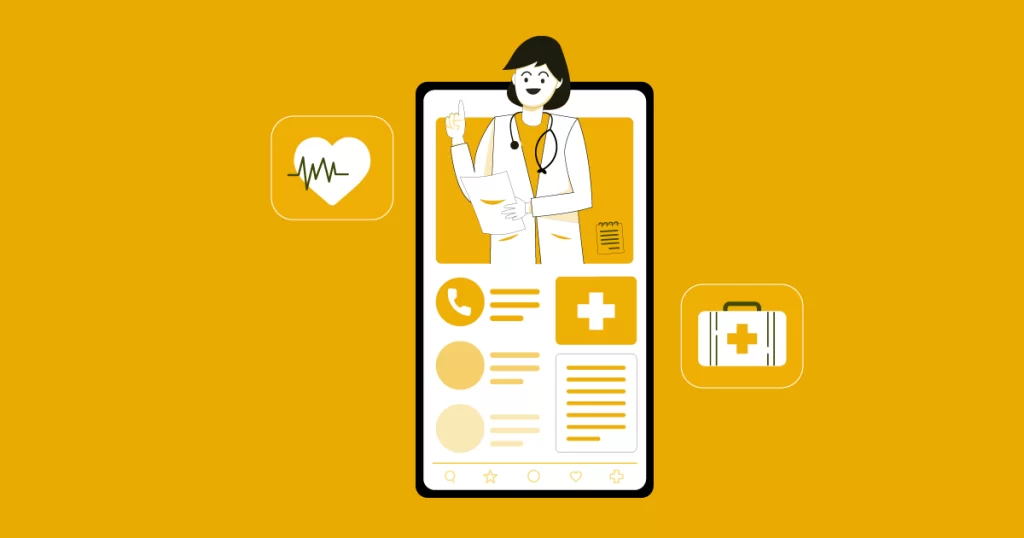How Mobile Apps Are Revolutionizing Healthcare

Healthcare mobile apps are simplifying a number of medical tasks. Among other things, they help patients manage their health by providing doctor appointment booking services, pill reminders, and healthy living tips.
Integrated secure payment gateways in healthcare apps also make it easy for individuals to pay medical bills without the need to stand in queues. This reduces billing errors, making it a seamless experience for patients and medical professionals alike.
Telemedicine
Healthcare apps make it easy for doctors to communicate with patients, whether through video consultations or phone calls. Patients can also schedule appointments or receive medication reminders.
Moreover, the telemedicine feature on mobile health apps allows users to get immediate medical attention without having to travel long distances. This is a significant advantage for people who live in rural areas.
Besides facilitating communication, telemedicine is also a cost-effective way to monitor patients and provide them with the best possible care. However, the main challenge for telemedicine is to ensure that it is easy and convenient for all users, especially those with lower incomes. This is why it’s essential to develop mobile healthcare apps that are user-friendly and easily accessible. Furthermore, these apps should allow for secure and encrypted communication between doctors and patients.
Remote Monitoring
Mobile health apps help doctors monitor patients remotely and provide timely interventions. It is especially beneficial for patients with chronic diseases, as regular monitoring helps in detecting and preventing health issues at an early stage.
Moreover, it reduces the need for face-to-face appointments and thus, saves on travel expenses and time. This also improves accessibility for patients who live far from hospitals or have trouble getting an appointment.
Health mobile apps are helping transform healthcare by enabling a better way to track and manage medical data, improving patient outcomes and overall care quality. The future of healthcare looks bright, with clear communication and streamlined processes. The healthcare industry is slowly embracing mHealth for improved record maintenance, efficient process automation, and effective consumer activation. The mHealth app market is expected to grow by 2022.
Health and Wellness Tracking
The synergy between wearable devices and mobile apps provides a continuous stream of data that helps monitor healthcare trends. This enables medical professionals to take proactive measures to ensure optimum health.
Healthcare mobile apps also help individuals manage chronic diseases by providing tools like symptom trackers, medication reminders, and online pharmacies. These can increase adherence to prescribed medications and reduce hospital readmissions. They can even be used to aggregate report results and medical bills for insurance reimbursements.
Moreover, top fitness apps incorporate gamification features that make tracking health goals more fun and engaging. This social aspect boosts user motivation and encourages them to adhere to healthy lifestyle habits. This increases user retention and improves app KPIs. The best healthcare mobile app development platforms allow for a seamless integration of these features to minimize app updates and development costs.
Medication Adherence
Medical apps can help boost adherence to prescription medications. For instance, medication reminders and tracking features can help patients stick to a treatment plan, reducing the risk of developing complications from poor adherence.
Healthcare apps can also help improve patient engagement by enabling individuals to track their health, book doctor consultations and gain access to relevant medical information. However, disparities in technology access highlight the need to ensure that healthcare apps are accessible to all.
Apps can also assist with a variety of administrative functions like managing vendors, analyzing costs and automating reordering of medical supplies that typically have short shelf lives. This can reduce waste and improve operational efficiency in hospitals and clinics. Apps that enable remote monitoring can also save time by eliminating the need to travel to see a doctor for an in-person appointment.
Patient Engagement
Medical app technology extends patient care well beyond the walls of the clinic or hospital. Automated digital reminders, recovery status checks and patient education keep aftercare instructions and other health tips top of mind for patients throughout their care.
Standardized patient satisfaction surveys don’t fully capture the elements that drive patient engagement and loyalty. A deeper understanding of a patient’s worldview allows healthcare providers to better customize engagement strategies that match their motivations, needs and communication preferences.
To successfully implement a patient engagement program, start small and grow your initiative as you gain traction. Begin by selecting a group of patients who could benefit from more careful health management. Ensure your patient engagement strategy includes a cohesive, easy-to-use clinical communication platform that supports secure phone, text and video capabilities.
